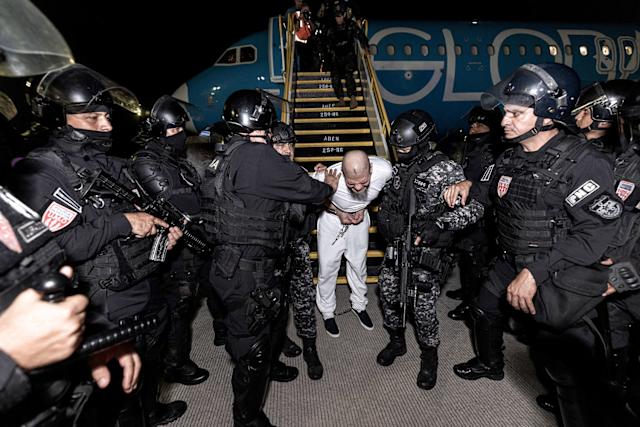Trump Administration Continues Deportations of Venezuelans Despite Court Ruling

The Trump administration proceeded with the deportation of individuals accused of being members of a Venezuelan gang, despite a court order prohibiting the action. In a bold statement, officials argued that the judge did not have the authority to stop their actions.
The deportations came after Judge James Boasberg issued an order preventing President Donald Trump from using the wartime powers under the Alien Enemies Act to swiftly deport over 200 suspected members of the Tren de Aragua gang, a Venezuelan criminal group associated with kidnapping, extortion, and contract killings.
White House press secretary Karoline Leavitt explained that a single judge from one city could not control the movement of an aircraft carrying foreign nationals who were being expelled from the country. She added that the court had “no lawful basis” for the ruling, emphasizing that federal courts generally have no jurisdiction over the President’s handling of foreign affairs.
The situation marked a significant escalation in Trump’s challenge to the U.S. Constitution’s checks and balances system, raising concerns about judicial independence. Patrick Eddington, a homeland security and civil liberties expert at the Cato Institute, criticized the administration’s stance, calling it an unprecedented challenge to the nation’s checks and balances since the Civil War.
When asked whether his administration had defied the court order, Trump deferred to his legal team but defended the deportations, stating, “I can tell you this: these were bad people,” referring to the alleged gang members.
In a hearing on Saturday evening, Judge Boasberg blocked the use of the Alien Enemies Act for 14 days, noting that the law applies to “hostile acts” by other countries that are “commensurate to war.” Trump argued that he was justified in using the law, comparing the recent surge in immigration to acts of war.
